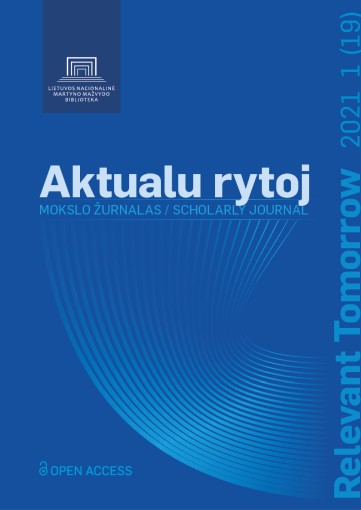Naujai perskaitytas 1940 metų spalio 22-osios Staffordo Crippso memorandumas
DOI:
https://doi.org/10.51740/RT.1.19.7Reikšminiai žodžiai:
Crippso memorandumas, britų ir sovietų santykiai, Antrasis pasaulinis karas, Lenkija, Baltijos šalys, aneksijaSantrauka
Šis straipsnis yra gerokai pataisyta ir išplėsta ankstesnio autorės straipsnio, 1993 m. paskelbto mokslo žurnale Dzieje Najnowsze, versija. Straipsnyje aptariamas britų pasiūlymas Sovietų vyriausybei suderinti dvišalius santykius tuo laikotarpiu, kai Sovietų Sąjunga buvo susitarusi su Trečiuoju reichu (pasidalinti įtakos zonomis Vidurio ir Rytų Europoje). Šiam susitarimui susilpninti Didžiosios Britanijos vyriausybė siūlė SSRS naudingų galimybių, ypač susijusių su pokariniais sprendimais Rytų ir Vidurio Europos valstybėse. Daug dėmesio naujame susitarime skiriama Lenkijai, taip pat Estijai, Latvijai ir Lietuvai, galiausiai – Rumunijai. Pasiūlymų autorius buvo Didžiosios Britanijos ambasadorius Maskvoje seras Staffordas Crippsas. Pasiūlymams Londone buvo pritarusi karo metais veikusi vyriausybė, o britų ambasadorius (užsienio reikalų ministro įpareigotas) turėjo juos pateikti Sovietų vyriausybei. Straipsnyje analizuojama dokumento rengimo ir aptarimo raida, lenkų vyriausybės emigracijoje reakcija į britų veiksmus ieškant susitarimo su Maskva. Memorandumas, 1940 m. spalio 22 d. S. Crippso įteiktas SSRS užsienio reikalų liaudies komisaro pavaduotojui Andrejui J. Vyšinskiui, buvo svarbus Didžiosios Britanijos ir Sovietų Sąjungos dvišalių santykių įvykis, todėl tyrinėjant ir atskleidžiant 1942 m. gegužės 26 d. britų ir sovietų sutarties genezę į jį turi būti kreipiama kur kas daugiau dėmesio. Į jį turi būti atsižvelgiama ir nagrinėjant Vidurio ir Rytų Europos valstybių ir tautų likimą po Antrojo pasaulinio karo. (Straipsnis parengtas mokslo žurnalo Aktualu rytoj / Relevant Tomorrow redakcinės kolegijos prašymu. Straipsnį iš lenkų kalbos vertė Andrius Vaišnys.)
Downloads
Atsisiuntimai
Publikuota
Kaip cituoti
Numeris
Skyrius
Licencija

Šis kūrinys yra platinamas pagal Kūrybinių bendrijų Priskyrimas 4.0 tarptautinę licenciją.









